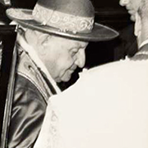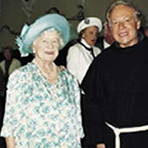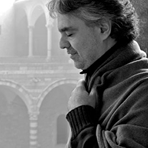Le visite dei pontefici

In quello straordinario testo che è la cosiddetta Lettera ai fedeli, Francesco scrive che
Gesù, “prossimo alla passione, celebrò la pasqua con i suoi discepoli”, e pur chiedendo al Padre che
il suo calice passasse senza che Egli fosse costretto a berlo, sudando sangue, “depose tuttavia la sua
volontà nella volontà del Padre”. “E la volontà del Padre suo fu questa, che il suo figlio benedetto
e glorioso offrisse se stesso, come sacrificio e vittima sull'altare della croce, non per sé, ma in
espiazione dei nostri peccati, lasciando a noi l'esempio perché ne seguiamo le orme (1Pt 2,21).
Il Santo sa – e perciò l'insegna ai suoi – che Gesù ha voluto additarci una strada, un percorso da
compiere: passare attraverso la morte del nostro egoismo, per risorgere in una vita veramente libera,
perché donata senza riserve e in piena gratuità. Bonaventura narra che in un giorno di Pasqua, in
un romitorio (l'agiografo non specifica di quale eremo si trattasse, ma sappiamo che fu in quello
di Greccio) durante gli ultimi suoi anni di vita), Francesco ammaestrò i frati “con santi discorsi
a celebrare continuamente la Pasqua del Signore, cioè il passaggio da questo mondo al Padre,
passando per il deserto del mondo in povertà di spirito, come pellegrini e forestieri”.
Passare nel mondo in povertà di spirito, ricchi cioè di quella beatitudine che – ce l'assicura Gesù
– ci fa padroni del Regno. Fare Pasqua, dunque, vuol dire saper accogliere con serenità gli eventi,
accettando anche il dolore e la morte nella consapevolezza che essi non sono la meta definitiva.
Fare Pasqua vuol dire trasformare il dolore in amore, senza masticare rabbia e meditare vendette,
perché così ha fatto il Signore; vuol dire saper gioire delle piccole cose, contentarsi di quel che si
ha, senza lasciarsi ardere dalla gelosia e dall'invidia; vuol dire amare la propria persona così com'è,
perché è con la nostra povertà che Dio vuol realizzare grandi cose. Francesco ha compiuto questo
percorso, fino in fondo, e chiede a noi di fare altrettanto.
Saint Francis and the Passover
In the extraordinary text that is the so named letter to the faithful, Saint Francis writes that Jesus "near to his passion, celebrated the passover with his disciples", and thou he asked his father that his calice passes without being constrained to drink it, sweating blood, "deposed his will in the will of the Father". "And his Father's will was this, that his blessed and glorious son, offers himself as victim and sacrifice on the altar of the cross, not for himself, but in atonement of our sins, leaving us the example so that we can follow his footsteps.
The Saint knows - and therefore teaches his followers - that Jesus wanted to show a way, a road ahead: passing through the death of our selfishness, to rise into a real free life, because given without limits in full gratitude. Bonaventure narrates that on an Easter day, in a hermitage (the agiographers do not specify which one, but we know that it was the one at Greccio, during the last years of his life), Francis mastered his friars "with saintly talks to celebrate continuously the Passover of Jesus, that is the passage from this world to the Father, passing through the desert of the world in the spirit of poverty as pilgrims and strangers".
Living richness in the world, the spirit of poverty, that is in the beatitude that - Jesus ensure - will makes us patrons of the Kingdom. Celebrating Easter, therefore, means accepting with serenity the events, accepting the pain and death in the knowledge that these are not the ultimate goal.
Celebrating Easter means transforming pain in love, without chewing anger and meditating revenge, because this is what our Lord did; that is being able to enjoy life out of little things, being satisfide with what you have, without leaving oneself being burned of jealousy and envy; that is loving one's self as he is, because by means of our poverty that God wants to realise great things. Francis completed this path to the end, and asks us to do the same.
IL TESTO DELLA LETTERA AI FEDELI
A tutti i cristiani, religiosi, chierici e laici, maschi e femmine, a tutti coloro che abitano nel mondo intero, frate Francesco, loro umile servo, ossequio rispettoso, pace vera dal cielo e sincera carità nel Signore.
Poiché sono servo di tutti, sono tenuto a servire a tutti e ad amministrare a tutti le fragranti parole del mio Signore. Per cui, considerando che non posso visitare i singoli a causa della malattia e debolezza del mio corpo, ho proposto con la presente lettera e con questo messaggio, di riferire a voi le parole del Signore nostro Gesù Cristo, che è il Verbo del Padre, e le parole dello Spirito Santo, che sono spirito e vita (Gv 6,63).
L'altissimo Padre annunciò che questo suo Verbo, così degno, così santo e così glorioso sarebbe venuto dal cielo, l'annunciò per mezzo del suo arcangelo Gabriele alla santa e gloriosa Vergine Maria, dalla quale ricevette la carne della nostra fragile umanità (Cfr. Lc 1,31). Egli, essendo ricco (2Cor 8,9) più di ogni altra cosa, volle tuttavia scegliere insieme alla sua madre beatissima la povertà. E prossimo alla sua passione, celebrò la Pasqua con i suoi discepoli, e prendendo il pane rese grazie, lo benedisse e lo spezzò dicendo: Prendete e mangiate, questo è il mio corpo. E prendendo il calice disse: Questo è il mio sangue del nuovo testamento, che per voi e per molti sarà sparso in remissione dei peccati (Mt 26,26-28; Lc 22,19-20; 1Cor 11,24-25). Poi, rivolto al Padre pregò dicendo: Padre, se è possibile, passi da me questo calice. E il suo sudore divenne simile a gocce di sangue che scorre per terra (Mt 26,39; Lc 22,44). Depose tuttavia la sua volontà nella volontà del Padre dicendo: Padre, sia fatta la tua volontà, non come voglio io, ma come vuol tu (Mt 26, 39.). E la volontà del Padre fu tale che il suo figlio benedetto e glorioso, dato e nato per noi, offrisse se stesso cruentemente come sacrificio e come vittima sull'altare della croce, non per sé, per il quale tutte le cose sono state create (Gv 1,3), ma per i nostri peccati, lasciando a noi l'esempio perché ne seguiamo le orme (1Pt 2,21). E vuole che tutti siamo salvi per Lui, e che lo si riceva con cuore puro e corpo casto. Ma pochi sono coloro che lo vogliono ricevere e vogliono essere salvati da Lui, sebbene il suo giogo sia soave e il suo peso leggero (Mt 11,30).
“Lettera ai fedeli” di San Francesco d'Assisi
(Fonti Francescane, 183-185)
In the name of the Father and of the Son and of the Holy Spirit. Amen.
Brother Francis, their servant and subject, sends esteem and reverence, true peace from heaven and sincere love in the Lord to all Christian religious people: clergy and laity, men and women, and to all who live in the whole world.
Because I am the servant of all, I am obliged to serve all and to administer the fragrant words of my Lord to them.Therefore, realizing that I could not visit each one of you personally because of sickness and the weakness of my body, I decided to offer you in this letter and message the words of our Lord Jesus Christ, Who is the Word of the Father, and the words of the Holy Spirit, which are spirit and life.
The most high Father made known from heaven through His holy angel Gabriel this Word of the Father – so worthy, so holy and glorious – in the womb of the holy and glorious Virgin Mary, from whose womb He received the flesh of our humanity and frailty. Though He was rich, He wished, together with the most Blessed Virgin, His mother, to choose poverty in the world beyond all else. And as His Passion was near, He celebrated the Passover with His disciples and, taking bread, gave thanks, blessed and broke it, saying: Take and eat: This is My Body. And taking the cup He said: This is My Blood of the New Covenant which will be poured out for you and for many for the forgiveness of sins. Then He prayed to His Father, saying: Father, if it can be done, let this cup pass from me. And His sweat became as drops of blood falling on the ground. Nevertheless, He placed His will in the will of His father, saying: Father, let Your will be done; not as I will, but as You will. His Father's will was such that His blessed and glorious Son, Whom He gave to us and Who was born for us, should offer Himself through His own blood as a sacrifice and oblation on the altar of the cross: not for Himself through Whom all things were made, but for our sins, leaving us an example that we might follow His footprints. And He wishes all of us to be saved through Him and receive Him with our heart pure and our body chaste. But, even through His yoke is easy and His burden light, there are few who wish to receive Him and be saved through Him."
From the “Letter to the Faithful” of Saint Francis of Assisi
Cari amici la rivista San Francesco e il sito sanfrancesco.org sono da sempre il megafono dei messaggi di Francesco, la voce della grande famiglia francescana di cui fate parte.
Solo grazie al vostro sostegno e alla vostra vicinanza riusciremo ad essere il vostro punto di riferimento. Un piccolo gesto che per noi vale tanto, basta anche 1 solo euro. DONA


